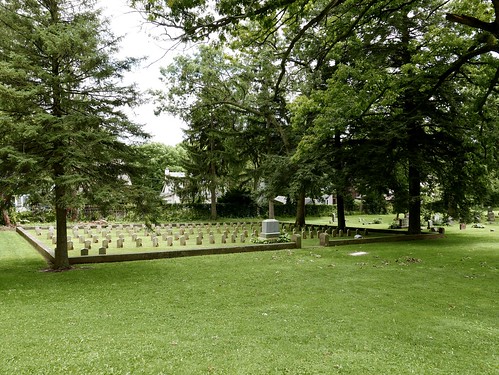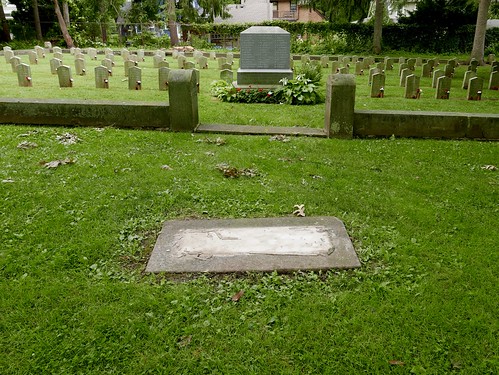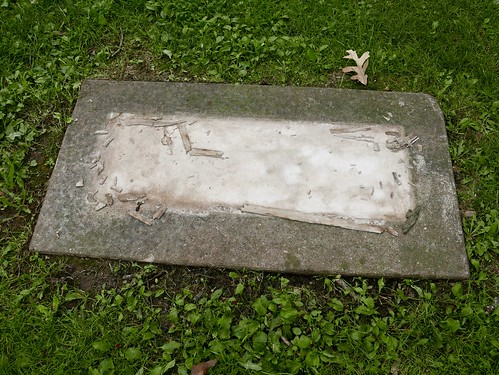


I had hoped that perhaps the plaque was not yet gone, because I wanted to read the text. But here's a photograph from William Cronon that shows how it looked. The text is mostly readable. The soldiers (who died as prisoners of war) are called "valiant." We're told they surrendered "after weeks of fighting under extremely difficult conditions" and that they arrived in the prison camp here in Madison "suffering from wounds, malnutrition and various diseases."
Within a few weeks 140 graves were filled, the last resting place for these unsung heroes, far from their homes in Alabama, Tennessee, Mississippi, Louisiana and Arkansas.It's a neutral, informative account except for that word "heroes." They were called "unsung heroes," but to say "unsung heroes" is to sing — however slightly — of their heroism. "Unsung" was thus untrue, and that little bit of singing of heroism was enough to incite the passion for cutting down monuments. Don't call them heroes just because they fought hard and suffered and died!
Who are heroes? "If somebody’s a prisoner, I consider them a war hero." That's what Donald Trump said after he said "He’s not a war hero. He was a war hero because he was captured. I like people who weren’t captured.”
My dictionary, the OED, says "A man (or occasionally a woman) distinguished by the performance of courageous or noble actions, esp. in battle; a brave or illustrious warrior, soldier, etc." It doesn't say the man had to fight on your side, but who puts up monuments using the word "heroes" for the courageous fighters on the other side? We know the answer: Our city. We had whatever reason we had to express kind thoughts toward the men who suffered and died in our prison camp. But our city's thoughts are harsher today. To paraphrase Trump: I like people who weren't fighting for slavery.
Here's an article from last May about veterans honoring the different sites, including Union Rest and Confederate Rest:
“You want to honor the soldiers. It doesn’t matter what side they were on,” said Carol Gannon-Hembel, who accompanied her husband, Alan Hembel, to the ceremony....
At the Confederate Rest service, Alan Zeuner and Dan Bradford, dressed in Confederate regalia, lamented the removal of the flag pole holder in front of the Confederate Rest grave site. Bradford called it a “slap in the face” to Confederate veterans who were repatriated after the war.
“It’s a part of history that is largely ignored,” Bradford said, regarding the role of Confederate soldiers in 19th-century Wisconsin history. “I want to see to it that people see it for what it really is, rather than outright lies.”
Bradford, a member of the 61st Georgia Infantry, has both Union and Confederate ancestors. He said he is a descendant of Union Army General James Shields, who is known for challenging Abraham Lincoln to a duel, prior to his presidency.
“These are just interesting little points of history,” Bradford said....



